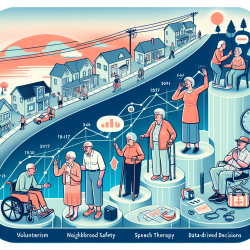Introduction
As professionals dedicated to improving health outcomes, it is crucial to leverage evidence-based practices. In the realm of climate change and health research, the recently developed CHANGE (Climate Health ANalysis Grading Evaluation) tool offers a robust framework for evaluating the quality of studies. This blog post explores how practitioners can enhance their skills by integrating the findings from this tool into their practice.
Understanding the CHANGE Tool
The CHANGE tool is a standardized two-step assessment designed to improve the transparency, comparability, and objectivity of weight-of-evidence (WOE) reviews in climate change and health research. It focuses on evaluating studies that quantify exposure-response relationships and those that implement or assess adaptation interventions.
Step 1: Study Classification
The first step involves categorizing studies based on various metrics such as exposure type, outcome type, timeframe, spatial scale, regional focus, and target population. This classification empowers researchers to draw more detailed conclusions and facilitates the dissemination of scientific information.
Step 2: Study Quality and Bias Assessment
In the second step, the tool assesses the quality and presence of bias in studies. This involves a detailed evaluation across five categories: transparency, selection bias, covariate variable selection, detection bias, and selective reporting bias. Each category is rated on a scale from 1 (highest scientific rigor) to 4 (poor rigor), with an option for unknown applicability.
Implementing the CHANGE Tool in Practice
For practitioners, the CHANGE tool offers a structured approach to critically evaluate research, ensuring that the evidence used to inform practice is of high quality. By integrating this tool into their review processes, practitioners can make more informed decisions, ultimately leading to better health outcomes.
- Enhanced Decision-Making: Use the tool to assess the rigor of studies, ensuring that only high-quality evidence informs practice.
- Improved Transparency: Adopt the tool's transparency metrics to enhance the clarity and reproducibility of research findings.
- Bias Mitigation: Utilize the tool's bias assessment to identify and mitigate potential biases in research.
Encouraging Further Research
The CHANGE tool not only aids in current practice but also encourages further research. By identifying gaps and biases in existing studies, practitioners can contribute to advancing the field of climate change and health research.
Conclusion
Incorporating the CHANGE tool into your practice can significantly enhance the quality of evidence-based decisions. By ensuring that research is evaluated with rigor and transparency, practitioners can better address the complex challenges posed by climate change on health.
To read the original research paper, please follow this link: The CHANGE (Climate Health ANalysis Grading Evaluation) tool for weight of evidence reviews on climate change and health research.










